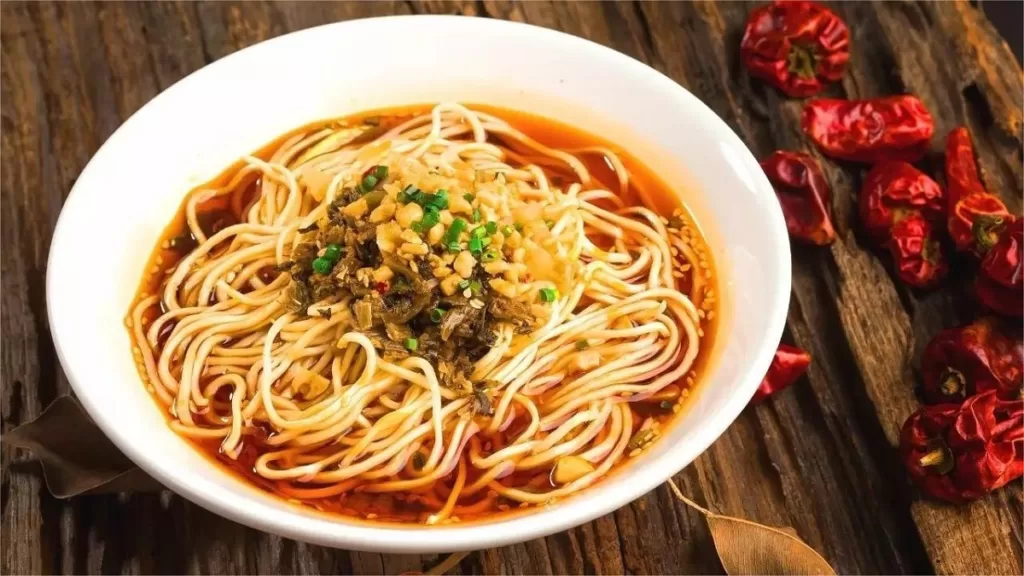Dandan Noodle - De bekendste noedel in Sichuan


Dandan noodles (担担面), a cherished culinary gem originating from the Sichuan province of China, exemplify a harmonious blend of flavors, textures, and cultural heritage. These delectable noodles have captured the hearts and palates of food enthusiasts worldwide, making them a quintessential representation of Chinese gastronomy.
At the heart of dandan noodles lies a rich history that dates back centuries. Believed to have originated as a street food sold by vendors carrying bamboo poles (known as “dandan”) over their shoulders, this dish has evolved from its humble beginnings into a symbol of Sichuan’s culinary prowess. The name “dandan” itself pays homage to the traditional carrying method, infusing the dish with a touch of authenticity and nostalgia.
Central to the appeal of dandan noodles is their complex flavor profile, characterized by a delicate dance between spice and umami. The foundation of the dish is a nest of freshly made wheat noodles, cooked to perfection with a satisfying chewiness. The noodles are typically bathed in a rich, savory sauce comprised of ingredients like sesame paste, soy sauce, vinegar, and chili oil. This sauce not only lends a luscious creaminess to the dish but also contributes a deep umami taste that keeps taste buds longing for more.
The hallmark of dandan noodles, however, is its fiery heat. Sichuan cuisine is renowned for its liberal use of the Sichuan peppercorn, which imparts a numbing sensation that sets it apart from other regional cuisines. In dandan noodles, the peppercorn is often combined with dried chili flakes, creating a symphony of spiciness that tantalizes the senses. This heat is tempered by the inclusion of minced pork, which adds a hint of sweetness and richness, balancing the overall flavor profile.
Dandan noodles are not just a gastronomic delight; they embody cultural significance as well. The dish’s popularity has transcended geographic boundaries, making it a beloved part of international Chinese cuisine. Its cultural impact is exemplified by its inclusion in countless Chinese restaurants around the world, where it serves as a gateway to Sichuan’s culinary heritage.
Beyond its traditional preparation, dandan noodles have inspired creative adaptations and fusion dishes. Chefs and home cooks alike have experimented with different proteins, such as chicken or tofu, to cater to various dietary preferences. Moreover, innovative interpretations of the dish have emerged, incorporating ingredients from other cuisines, resulting in exciting cross-cultural culinary experiences.
In conclusion, dandan noodles encapsulate the essence of Sichuan cuisine – a harmonious symphony of flavors, textures, and cultural heritage. From its humble beginnings as street food to its current status as an international culinary sensation, dandan noodles continue to capture hearts and palates with their bold spiciness, velvety sauces, and rich history. This beloved dish serves as a delectable reminder of the artistry that can be found within a simple bowl of noodles, a testament to the enduring power of food to unite people across time and space.